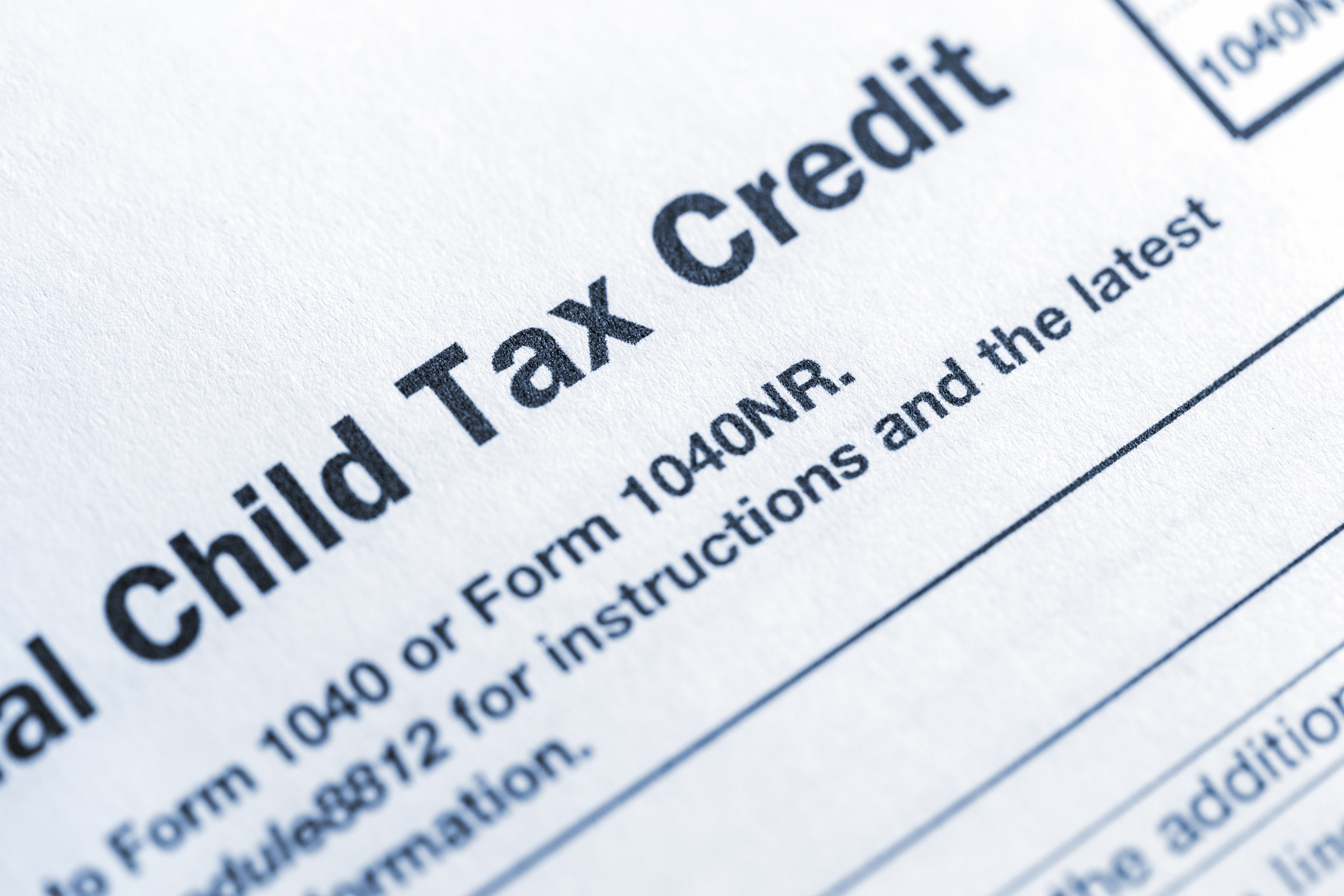Lower Your Property-Tax Bill
If your house has lost value, challenge the assessment.

Profit and prosper with the best of Kiplinger's advice on investing, taxes, retirement, personal finance and much more. Delivered daily. Enter your email in the box and click Sign Me Up.
You are now subscribed
Your newsletter sign-up was successful
Want to add more newsletters?

Delivered daily
Kiplinger Today
Profit and prosper with the best of Kiplinger's advice on investing, taxes, retirement, personal finance and much more delivered daily. Smart money moves start here.

Sent five days a week
Kiplinger A Step Ahead
Get practical help to make better financial decisions in your everyday life, from spending to savings on top deals.

Delivered daily
Kiplinger Closing Bell
Get today's biggest financial and investing headlines delivered to your inbox every day the U.S. stock market is open.

Sent twice a week
Kiplinger Adviser Intel
Financial pros across the country share best practices and fresh tactics to preserve and grow your wealth.

Delivered weekly
Kiplinger Tax Tips
Trim your federal and state tax bills with practical tax-planning and tax-cutting strategies.

Sent twice a week
Kiplinger Retirement Tips
Your twice-a-week guide to planning and enjoying a financially secure and richly rewarding retirement

Sent bimonthly.
Kiplinger Adviser Angle
Insights for advisers, wealth managers and other financial professionals.

Sent twice a week
Kiplinger Investing Weekly
Your twice-a-week roundup of promising stocks, funds, companies and industries you should consider, ones you should avoid, and why.

Sent weekly for six weeks
Kiplinger Invest for Retirement
Your step-by-step six-part series on how to invest for retirement, from devising a successful strategy to exactly which investments to choose.
If you anticipate a silver lining in the black cloud of declining home prices -- in the form of lower property-tax bills -- you may be disappointed. The National Taxpayers Union figures that as much as 60% of taxable property in the U.S. is overassessed, largely because assessment cycles haven't caught up with the decline in home values.
| Row 0 - Cell 0 | Adult Communities Beg for Buyers |
| Row 1 - Cell 0 | Fighting a Foreclosure |
| Row 2 - Cell 0 | Fragile State of Home Prices |
| Row 3 - Cell 0 | TOOL: Search Home Loan Rates in Your Area |
In California, for example, a home's assessed value is based on its purchase price, plus increases of up to 2% annually. The house isn't revalued until it's sold again. To capture the price plunge of the past few years, homeowners must file an appeal and prove that their home's assessed value exceeds its market value. In San Diego County, the assessor's office processed 80,000 appeals in 2008; the average reduction in assessed value so far is $110,000, equivalent to a tax cut of $1,200.
Many jurisdictions calculate a home's assessed value as a fraction of its market value, so do the math to make sure your home is priced fairly. Also verify that you have received any breaks you're entitled to, such as a homestead exemption or a reduction for seniors or veterans.
From just $107.88 $24.99 for Kiplinger Personal Finance
Become a smarter, better informed investor. Subscribe from just $107.88 $24.99, plus get up to 4 Special Issues

Sign up for Kiplinger’s Free Newsletters
Profit and prosper with the best of expert advice on investing, taxes, retirement, personal finance and more - straight to your e-mail.
Profit and prosper with the best of expert advice - straight to your e-mail.
How to appeal. Go to the assessor's Web site or office to double-check the "property card" and any working papers for your home. Are the figures for square footage and number of bedrooms and bathrooms correct? Has the assessor accounted for any features that could detract from your home's value, such as an irregularly sized lot or a carport instead of a garage? Pull the property cards for five or ten neighboring homes that are similar in terms of age, style and features. If the assessments on similar properties are a lot lower -- 10% or more -- you have a good case based on uniformity.
Otherwise, if you believe your home's assessed value exceeds its market value, you'll have to provide sales-price data for several comparable homes. You can get that information from a real estate agent, or check the local public library or your county assessor's or county clerk's office. Ask the assessor whether a recent appraisal for, say, a refinancing is acceptable proof of your home's market value.
Two chances. Read your assessment letter for details on how to appeal. You'll probably have two windows of opportunity: During the first, you may request a reduction in the assessed value of your home for the forthcoming tax bill. During the second, you may appeal for a retroactive reduction and refund.
Until your appeal is resolved, pay your tax bill in full to avoid incurring penalties and a lien against your home. As a last resort, you could go to court, but that's an expensive process usually best suited for commercial property owners with more at stake.
You may see advertisements for companies that will help you appeal your assessment, often in exchange for about half of any savings on your tax bill. But with the right preparation, you can probably do just as well yourself using a guide such as How to Fight Property Taxes ($6.95), from the National Taxpayers Union. The NTU's Web site also has links to state and local taxpayer associations that may offer further insight into the appeals process.
Profit and prosper with the best of Kiplinger's advice on investing, taxes, retirement, personal finance and much more. Delivered daily. Enter your email in the box and click Sign Me Up.

-
 How Much It Costs to Host a Super Bowl Party in 2026
How Much It Costs to Host a Super Bowl Party in 2026Hosting a Super Bowl party in 2026 could cost you. Here's a breakdown of food, drink and entertainment costs — plus ways to save.
-
 3 Reasons to Use a 5-Year CD As You Approach Retirement
3 Reasons to Use a 5-Year CD As You Approach RetirementA five-year CD can help you reach other milestones as you approach retirement.
-
 Your Adult Kids Are Doing Fine. Is It Time To Spend Some of Their Inheritance?
Your Adult Kids Are Doing Fine. Is It Time To Spend Some of Their Inheritance?If your kids are successful, do they need an inheritance? Ask yourself these four questions before passing down another dollar.
-
 9 Types of Insurance You Probably Don't Need
9 Types of Insurance You Probably Don't NeedFinancial Planning If you're paying for these types of insurance, you may be wasting your money. Here's what you need to know.
-
 The 'Scrooge' Strategy: How to Turn Your Old Junk Into a Tax Deduction
The 'Scrooge' Strategy: How to Turn Your Old Junk Into a Tax DeductionTax Deductions We break down the IRS rules for non-cash charitable contributions. Plus, here's a handy checklist before you donate to charity this year.
-
 New IRS Changes to FSA Contribution Limits for 2026: What to Know
New IRS Changes to FSA Contribution Limits for 2026: What to KnowHealth Care Flexible Spending Accounts have tax advantages worth looking into, especially in light of new IRS changes.
-
 Is a New $25,000 Health Care Tax Deduction Coming in 2026?
Is a New $25,000 Health Care Tax Deduction Coming in 2026?Tax Policy A proposal from GOP Sen. Josh Hawley adds to the chatter about health care affordability.
-
 An HSA Sounds Great for Taxes: Here’s Why It Might Not Be Right for You
An HSA Sounds Great for Taxes: Here’s Why It Might Not Be Right for YouHealth Savings Even with the promise of ‘triple tax benefits,’ a health savings account might not be the best health plan option for everyone.
-
 How the 2025 Child Tax Credit Rules Impact Single Parents
How the 2025 Child Tax Credit Rules Impact Single ParentsTax Credits New changes to family tax credits, like the Child Tax Credit, will impact the eligibility of some households.
-
 Money for Your Kids? Three Ways Trump's ‘Big Beautiful Bill’ Impacts Your Child's Finances
Money for Your Kids? Three Ways Trump's ‘Big Beautiful Bill’ Impacts Your Child's FinancesTax Tips The Trump tax bill could help your child with future education and homebuying costs. Here’s how.
-
 Key 2025 Tax Changes for Parents in Trump's Megabill
Key 2025 Tax Changes for Parents in Trump's MegabillTax Changes Are you a parent? The so-called ‘One Big Beautiful Bill’ (OBBB) impacts several key tax incentives that can affect your family this year and beyond.